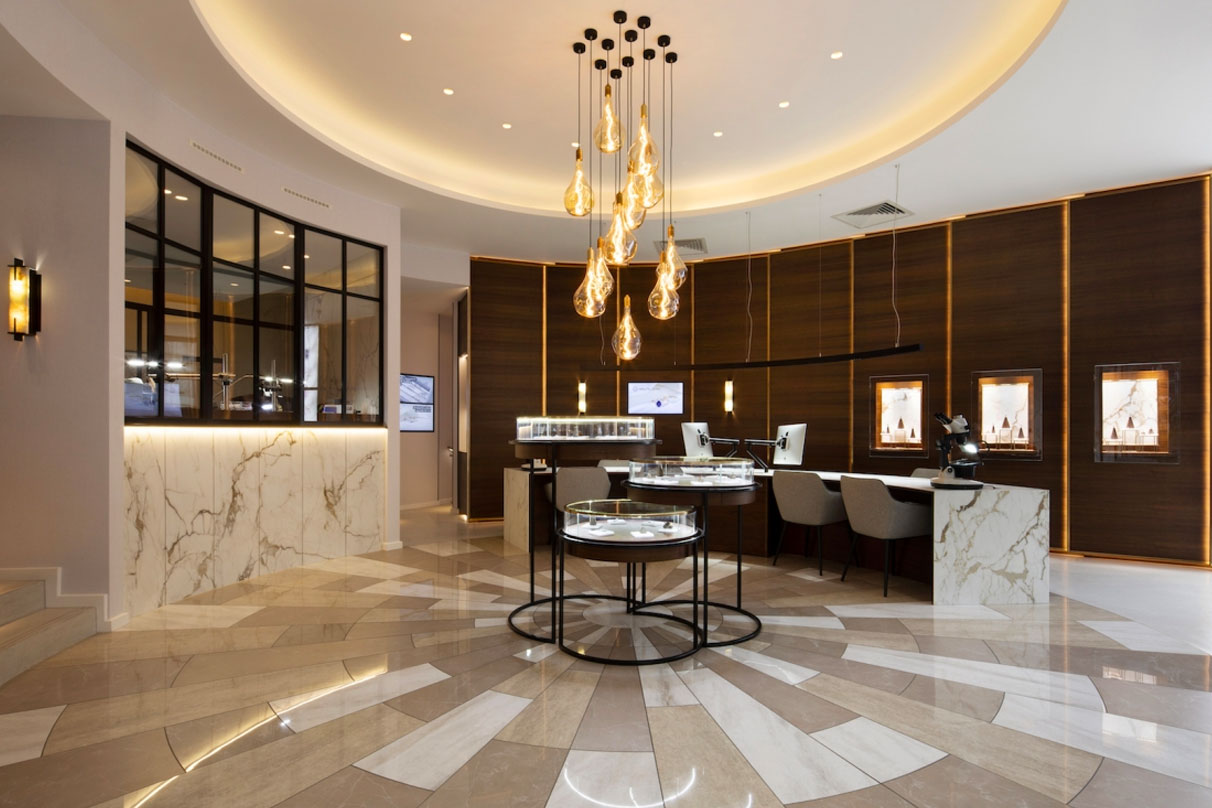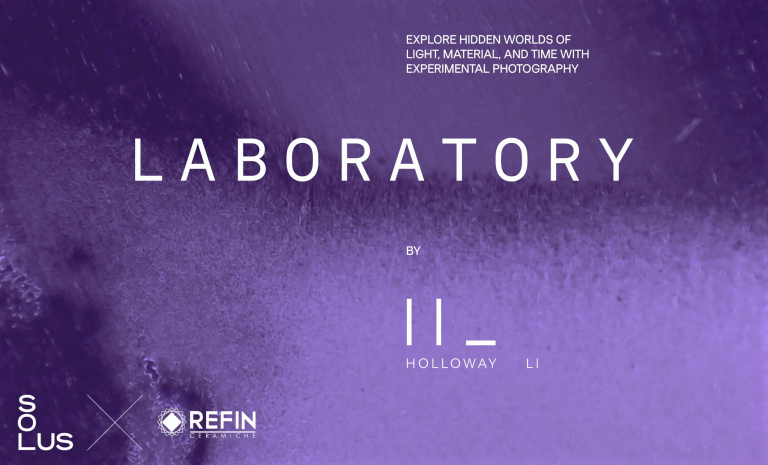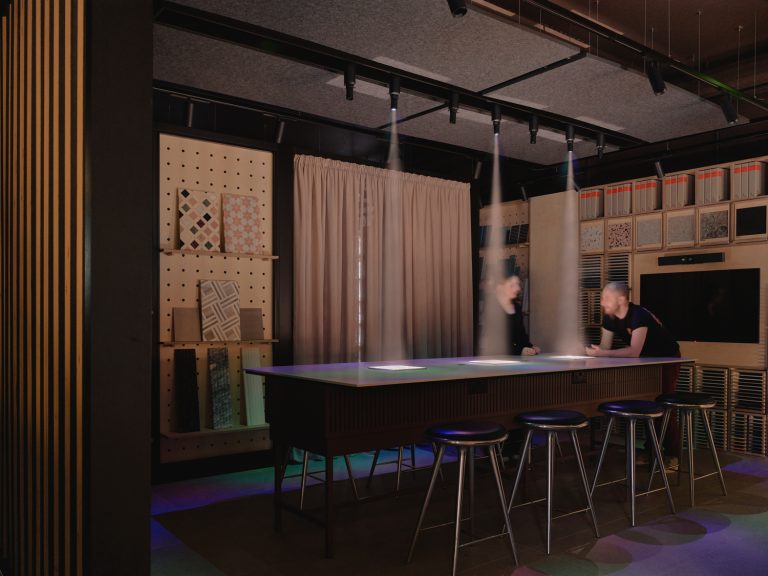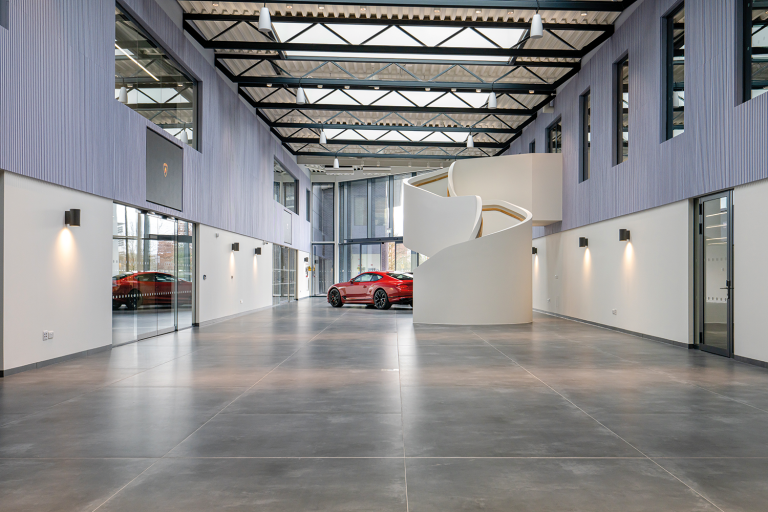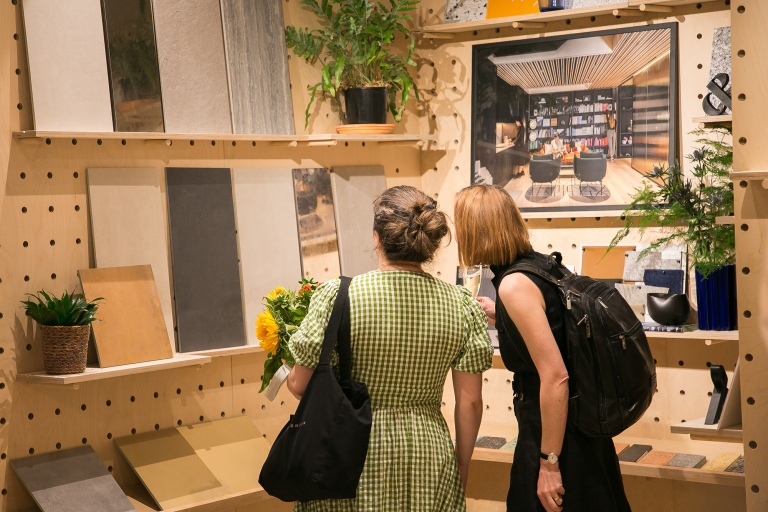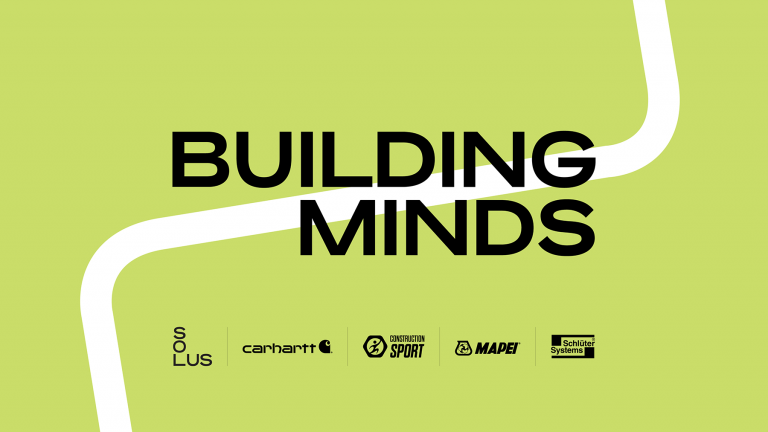The CEO of Mirage discusses the responses of the ceramic industry to the climate emergency with our Editor, Conleth Buckley.
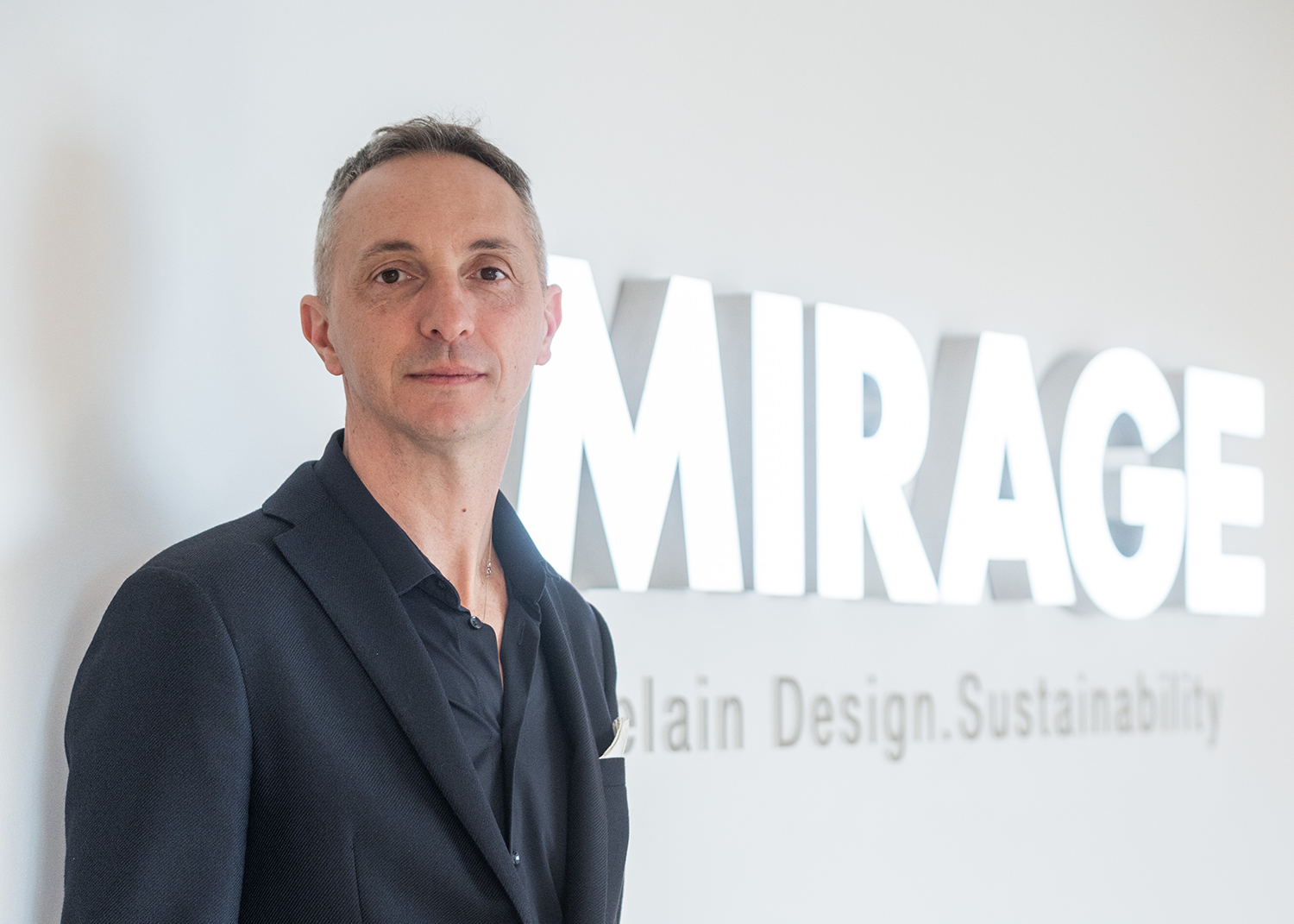
In conversation with Mauro Mazzi, CEO of Mirage
17th April 2023
Mauro Mazzi is well-prepared. As the CEO of one of the largest and most successful ceramic manufacturers in the world, this is to be expected. Prior to our interview, I have sent my questions, at his request, so that he can consult his team and provide us with the fullest and best answers.
Before meeting Mauro, we’re given a tour of the facility in an eight-seater golf cart. The plant reminds me most forcibly of a port. Hundreds of lorries arrive, load, and leave, delivering 2 million kg per day to over 130 countries worldwide. Teams of autonomous loaders glide over the polished concrete, moving tonnes of material effortlessly. The production line produces a 1600x3200mm slab of porcelain every minute, the blade of the cutter angled to account for the constant speed of the conveyor. The kilns, some of which are longer than 200m, run day and night producing over 16,000,000sqm of ceramic every year.
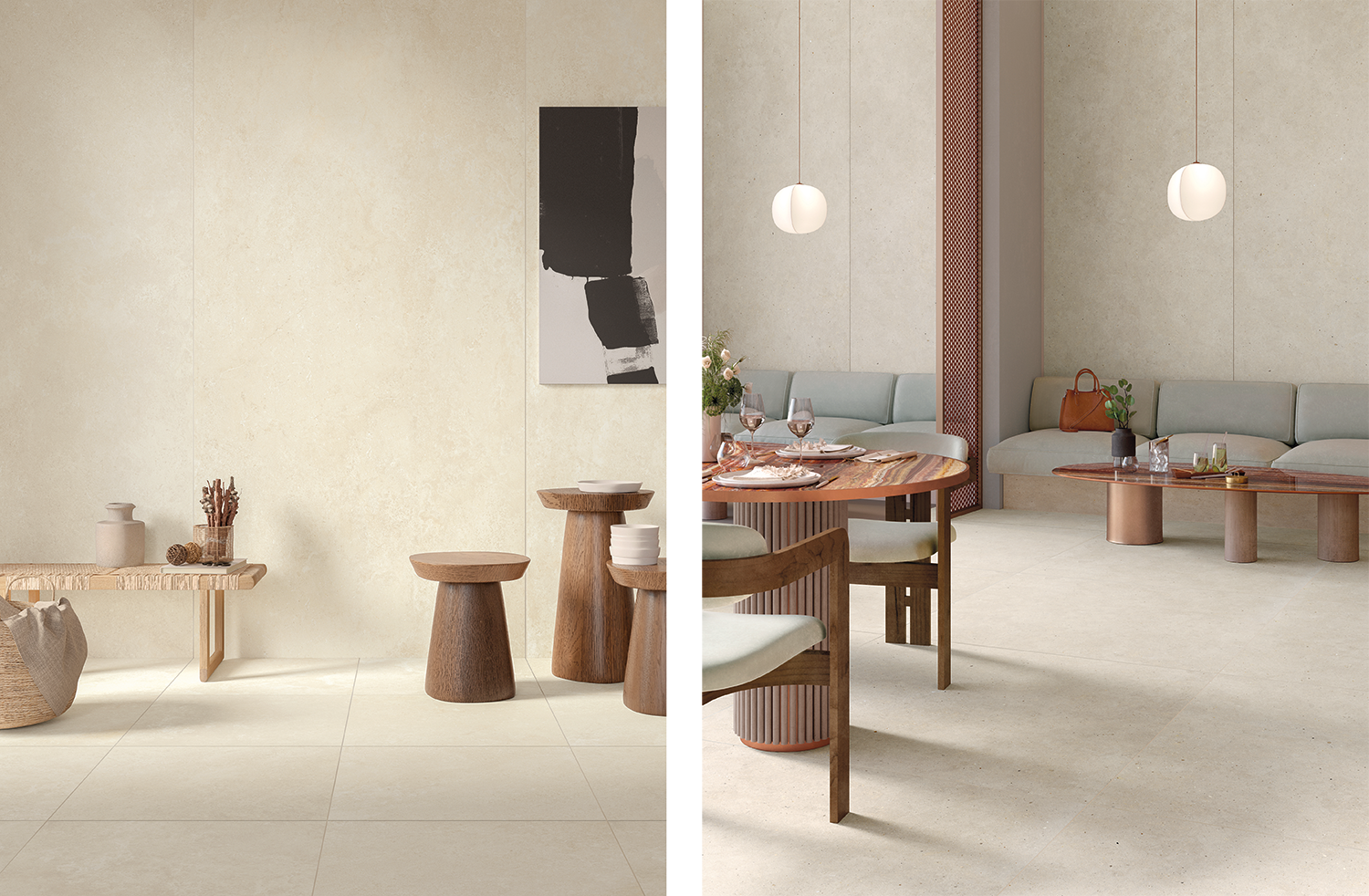
Our exquisite porcelain stoneware range Tufa demonstrates the technical and aesthetic refinement of Mirage.
He greets us warmly at the reception of the Mirage facility, a vast manufacturing plant extending 480,000sqm across the hills of Pavullo. He ushers us into his simple office – a four-person meeting table, a desk, an inconspicuous wooden crucifix, a faded family photograph. This is a man accustomed to the enactment of power but uninterested in its ostentation. He is wellgroomed, tall, healthily tanned, with lively brown eyes and a face that enjoys laughter.
“Thanks for sending over your questions. I’ve prepared this eight-page document in answer. I thought we could use it as a basis for the interview.” As Mauro prints the document and hands it to me, I realise this will not be a rambling, eclectic conversation that I will have to pare and polish, but rather a precise communication of strategic significance for Mirage.
Mirage was founded in 1973 by Mauro’s father-in-law and seven others; Mirage was acquired by Concorde Group in 2004. Before joining Mirage, Mauro had worked for Concorde so was well known by both parties. I ask him if the family connection has been useful, “It has positive and negative aspects. Truth is that if you are not good enough and do not deliver enough, you cannot keep a position for very long.”
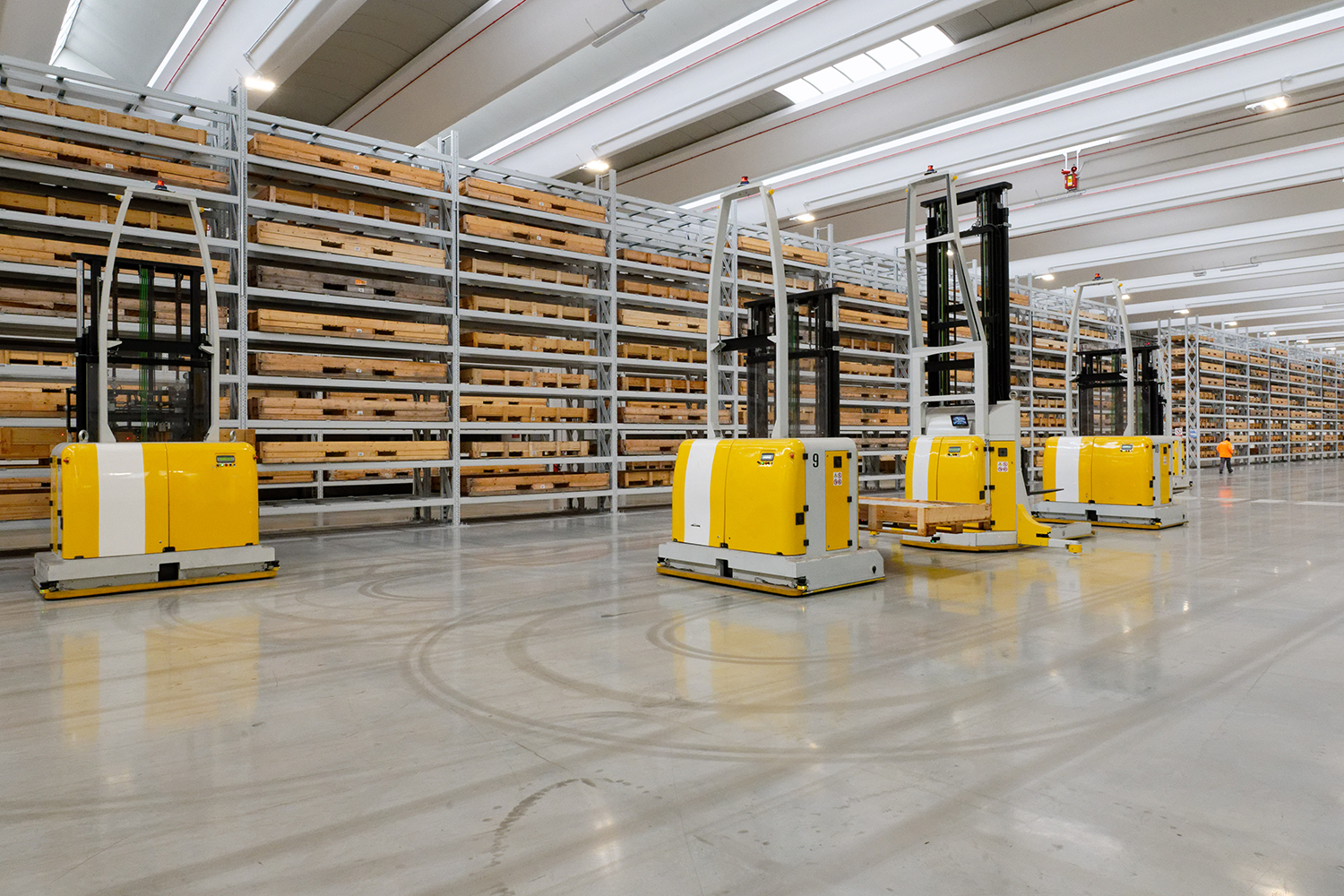
A fleet of 54 battery-powered, laser-guided vehicles transport maximum loads of 4 tonnes around the plant. With the installation of solar panelling, they will be recharged with renewable energy.
“It has been really useful to prepare for this interview. Communicating who we are is something to which, historically, we haven’t given priority. We’re very pragmatic people. We spend most of our time dealing with facts. But it is one thing to do it, another to communicate it. In this sector, if you talk a lot, you can cast a big shadow; and if you don’t talk a lot, people may wrongly assume you are smaller than you are. As part of a conglomerate that has been a strategy to some extent, but increasingly, clear communication is a driving factor in selection processes for customers.”
What made you want to work in the ceramic tile industry?
If you are born in this area of Italy, either you work in the ceramic industry or you work in a company that provides services/products to the ceramic industry. It is a unique industry and once you try it, you love it. This is because it combines two things that are usually difficult to resolve: the creation of beauty and design (typical of Italian craftsmanship), with the extraordinary efficiency of a strong industrial process.
This is our mission in Mirage: we know we cannot change the world with our porcelain tiles, but we do know that our contribution will touch the lives of many people as we aim, with our porcelain, to make the places where they live, study, work or spend their free time, better. Our brand tagline is ‘Inspiring better living’. We know that porcelain tiles are still the most important piece of furniture in any room, even if taken for granted most of the time.
What distinguishes Mirage from other tile manufacturers?
I could say that Mirage produces some of the best porcelain tiles and slabs in the industry, with top technical qualities, exceptional performance, refined aesthetics, produced in a state-of-the-art plant in a sustainable way, but this would be only part of the truth. What really makes the difference is our people and the quality of the relationships we generate. We live in a world of abundance: you can find lots of different products for any choice you have to make; porcelain is no exception. When you choose to buy something, that something must mean something to you. You need to have a sort of emotional attachment: to be sure that it not only fits your needs from a technical and performance point of view, but that it is produced in a way you would approve and that is brought to you by a person you can trust. To put it succinctly, you want the company you buy from, the people you buy from, to share your values.
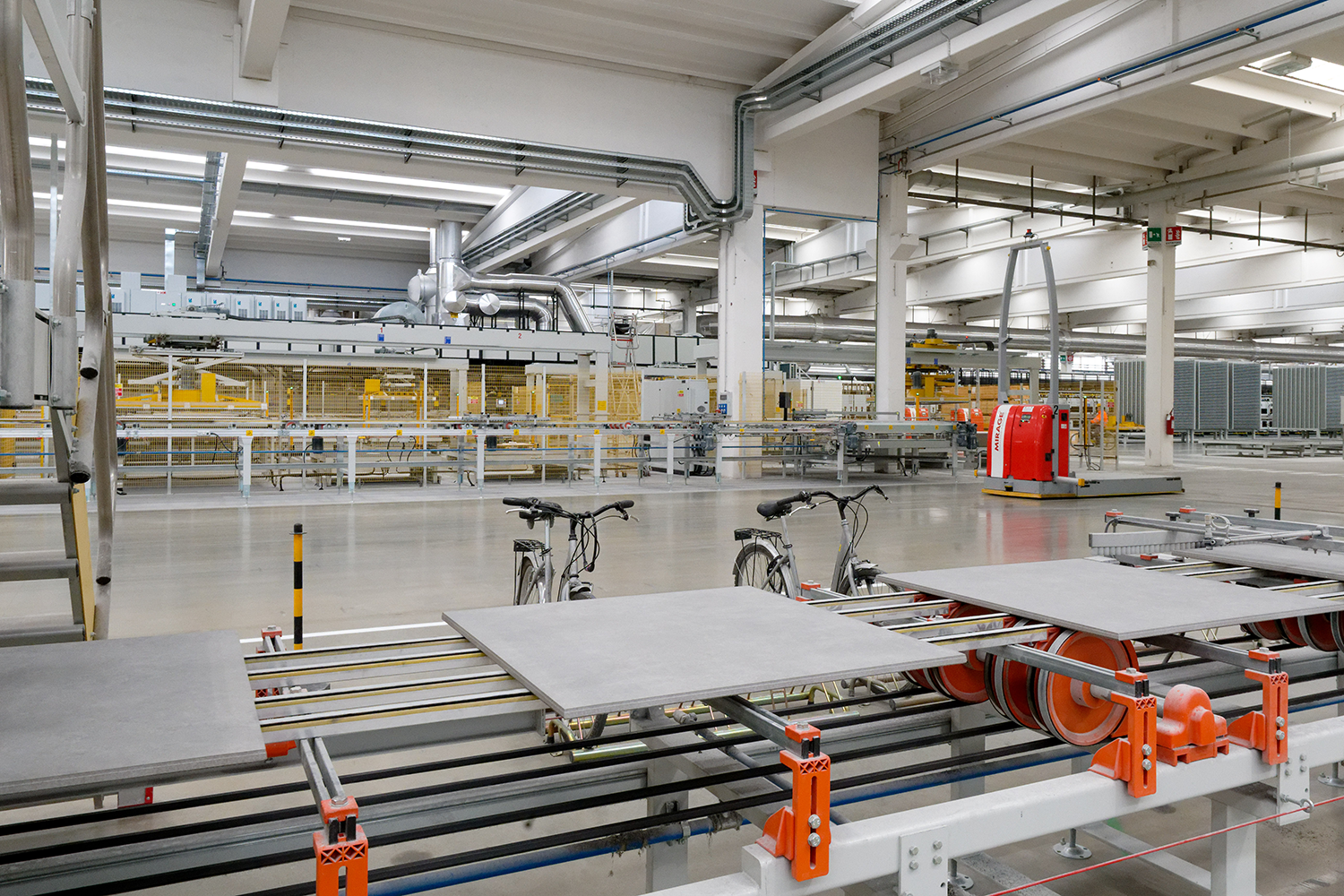
What’s the most challenging aspect of making tiles?
It is now a consolidated and mature industry. The real challenge is energy. This is also the challenge of the future. The truth is that energy has been effectively free for the last 20 years for Europe and the whole world. Gas was around 20 euro/MWh and electricity 40 euro/MWh. This has secured enormous progress in standards of living and generated tremendous economic growth.
Now, due to geopolitical issues rather than energy scarcity, we are discovering that energy has a cost; and due to environmental issues, we are discovering that energy has consequences for the environment. But we are just at the beginning of the process and there is a lot of confusion amongst people for two reasons: there is a lot of hypocrisy (particularly in politics, but also in company communication) and a lot of ignorance. It is still something that people know little about because it is complicated and highly technical.
Will tiles ever be made with 100% renewable energy?
We are in the middle of a huge transition where different countries are in very different situations. Anything can happen. Europe is focusing on CO2 neutrality by 2050 (The Paris Agreement). Industries such as cement, steel, energy production, tiles, glass, and paper are “hard-toabate”, as they require a great amount of energy. Heat and energy are taken from gas which emits CO2 into the atmosphere. It is difficult to imagine living without those industries, but they can certainly reduce their carbon footprint, and we are all working hard to change processes; but it takes time.
First, we must not confuse ‘energy’ with ‘electricity’. Electricity is just one part of the final energy that we use. In fact, it is the least consumed final energy in the world. Heat accounts for 50% of energy consumption, electricity 22%, and fuel for transport 28%. Consider that in an average tile plant: 75% of gas is used for heating, 20% for cogeneration and 5% for electricity. Right now, only hydrogen can replace gas as heat energy without having a carbon footprint. It’s also important to remember that most of the electricity consumed today is generated by thermal power stations (i.e. still burning gas, if not coal or oil). Hydrogen seems like a great solution, but it has several problems that must still be overcome, and not everyone agrees that it is the perfect solution.
The real problem is how to generate hydrogen, specifically ‘green’ hydrogen, as opposed to ‘white’, ‘grey’, or ‘blue’ hydrogen. The challenge is to efficiently produce all the hydrogen needed in the future and to produce it in a sustainable way. Unfortunately, today most hydrogen is still produced from natural gas (CH4). Other options are carbon capture and storage, or carbon offsetting.
We are also considering another possibility: biogas, which is gas produced through the processing of various types of organic waste. It is a renewable and environmentally friendly fuel made from 100% local feedstocks. The impact of biogas production on the circular economy is further enhanced by the organic nutrients recovered in the production process. Biogas can be produced from a vast variety of raw materials (feedstocks). The biggest role in the biogas production process is played by microbes feeding on the biomass (organic matter). Even here the challenge is to produce enough of it, and still, it does emit CO2 in the air.
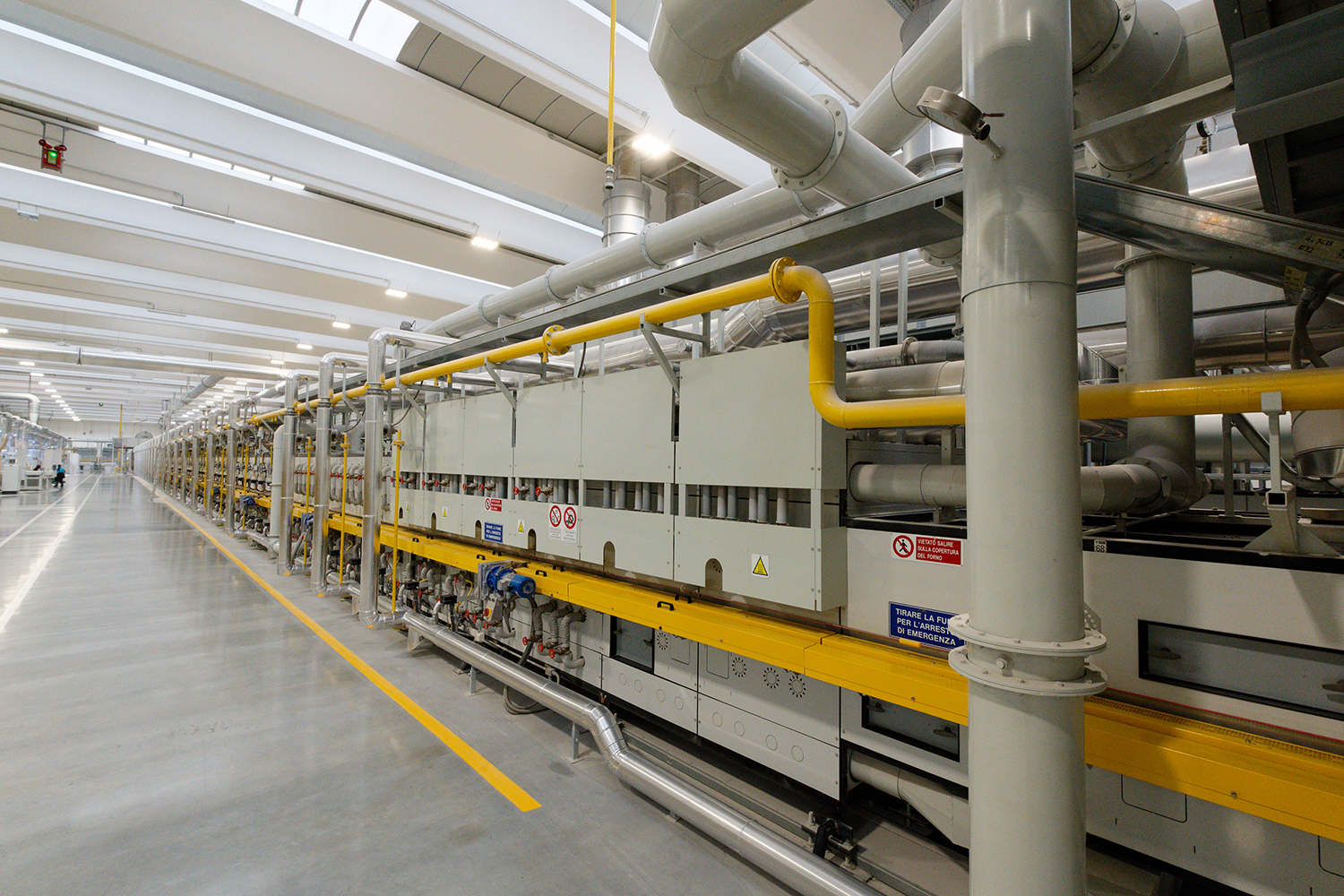
The 220m kiln reaches a maximum temperature of 1230°C. Latest-generation burners provide a 15% energy consumption saving. The longer kiln allows the production of larger slabs and results in greater production efficiency
Mirage seems to be investing heavily in new and sustainable manufacturing technologies like green hydrogen. Can you describe this journey and let us know the challenges and ultimate benefits?
Mirage aims at carbon neutrality by 2050 at the latest. We are working and studying hard to make it happen well before. Besides investigating alternative and sustainable sources of energy to replace natural gas, we invest heavily in making our production plant as efficient and neutral as possible.
- All Mirage’s kilns are ‘hydrogen-ready’.
- Two engines generate enough electricity to run the whole plant, and generate excess, which we sell to the national provider. We recycle the heat coming from the engines and use it in the spray dryer saving about 300 tonnes of CO2 per year.
- We will start installing around 2.3 MWh of solar panels. We are waiting for authorisation for another 5.5 MWh and 3.8 MWh. This will be needed the day we start producing green hydrogen.
- Mirage is building an artificial lake that will allow us to use only water coming from rain.
- Mirage recycles all the water in the production plant: nothing goes into the sewer.
- All our suppliers are certified to respect environmental, labour, and human rights laws.
- Mirage recycles 100% of fired scraps, 100% of raw scraps, and buys three times this amount of fired scraps from a waste recovery company to be recycled in our process.
- Mirage already has the following certifications:
- ISO 14001: environment o ISO 45001: safety and health
- ISO 17889: sustainability in the ceramic industry
- PEF: Product Environmental Footprint
- EPD: Environmental Product Declaration
- Ecovadis: Business Sustainability (ESG) Strategy assessment
- Ecovadis is a network of companies united by a common ESG assessment. Companies like Coca-Cola, Ferrero, Johnson&Johnson, Nestlé and LVMH, L’Oréal, and Henkel are all part of the Ecovadis network. As several of our partners were already in this network, it was natural for us to join them.
- We are just at the beginning of this new route, but we strongly believe in it. We will appoint a Sustainability Manager with a team of people that will continuously challenge us on how to improve efficiency and circularity in Mirage’s processes, personal development of our people, and of the community we live in.
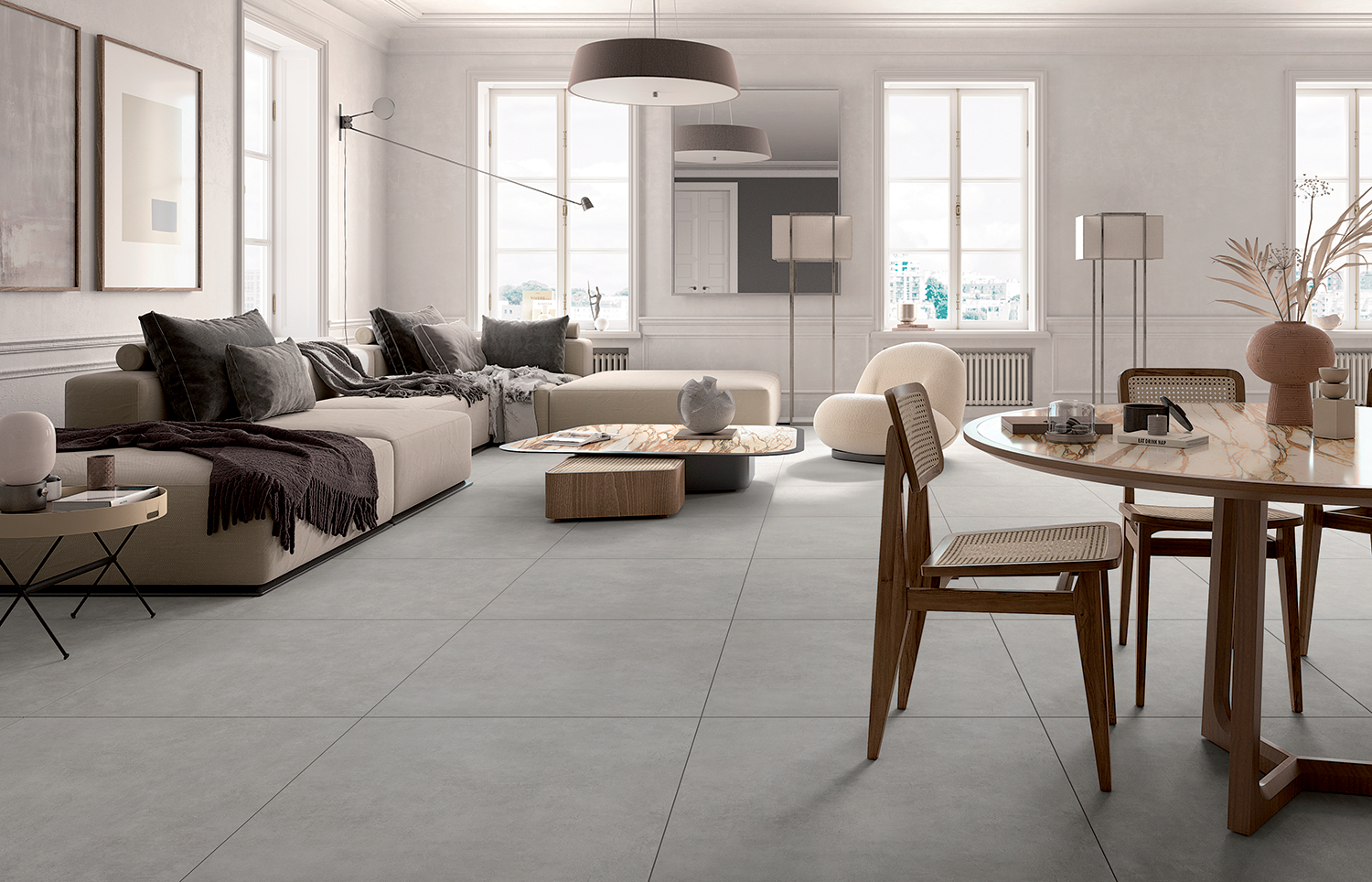
Our popular and transformative concrete-look collection, Construct, is made by Mirage.
Has the Environmental, Social, and Governance (ESG) assessment been a complicated path?
Not really: if you have always done the right thing and your structure is oriented to continuous improvement, it is just a simple process of paperwork. A few things may seem a little strange, but it is perfectly normal when you want to be part of a community that works in more than 175 countries where laws and practices are very different: for example, child labour. The Ecovadis assessment requires that we have a policy about it, but to ask a company in Italy if they use child labour sounds like the strangest thing on earth.
On one hand, because nobody in their right mind would hire a kid to work and, on the other hand, it is forbidden by the Constitution and the law! Nonetheless, we did not have a policy, so we had to write it, which was easy because it was embedded in the way we already are. The difficult part is now to start from where we are and continue to improve the way we do business. And there is still a long way to go to be CO2 neutral before 2050!
What’s it like to work at Mirage as an employee?
It is fun and exciting. We’ve put together an extraordinary group of people with a huge passion for what they do. They like it and you can see it: you can feel the energy. And passion is contagious and attracts likeminded people. We are far from being perfect, but we are proactive when there are problems. This has allowed us to grow every single year in the last 20 years.
We have invested a fortune in technology, production capacity and today, possibly, Mirage is the biggest Italian plant in the industry. This is just to say to our partners that we are with them: they can rely on us.
What’s the most important message you would like to transmit about Mirage and the work you do?
Every time that we ask the same question to our partners, we almost always get the same answer: Mirage is a company you want to work with because it is reliable and accountable. As a matter of fact, I would say that Mirage is in the business of building and nurturing partnerships, not in the porcelain business. Obviously, a quality product is a must, but it is not only that activity that defines the business.
The key message is that Mirage is firmly determined to reduce its impact on CO2 emissions, contribute to a circular economy, and promote responsible behaviour in general. Mirage wants to be ‘sustainable’ because we are responsible. We have always been responsible. We have always tried to do things better (recycling, saving energy, treating our people and suppliers fairly) to reduce costs: it was a way to be efficient. Now, we have an even more compelling reason: because it is our responsibility to preserve the environment and the community of which we are a part.
